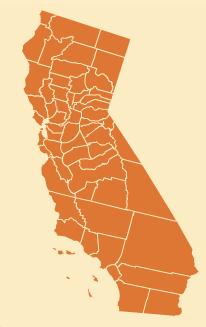Millions of Facts – But Do We Have Yours?
 On kidsdata.org, we have millions of data points across hundreds of measures of child well being. So you’d think that we possess all the data that people in California ever could want. Yet whenever we’re in Los Angeles, we invariably get questions about data we don’t have. Preschool or afterschool enrollments, HIV among parents, media consumption among adolescents, art programs in schools, data for children 0-5 who have special health care needs, rates of 2nd teen births. The list literally goes on.
On kidsdata.org, we have millions of data points across hundreds of measures of child well being. So you’d think that we possess all the data that people in California ever could want. Yet whenever we’re in Los Angeles, we invariably get questions about data we don’t have. Preschool or afterschool enrollments, HIV among parents, media consumption among adolescents, art programs in schools, data for children 0-5 who have special health care needs, rates of 2nd teen births. The list literally goes on.
And at the opposite end of the state, in Redding, a similar craving for hard-to-find data emerged during some recent meetings. There in Shasta and neighboring counties, we heard about one of the more pressing issues affecting kids up there –drug abuse – and the resultant need for data on parental substance abuse and prenatal drug exposure, as well as fetal alcohol syndrome. People also expressed a desire for data on abuse of kids with special needs, child care waiting lists, maternal depression, and the numbers of children born to teen parents.
All of these, of course, are important issues affecting the physical and emotional health of kids. However, for some of these topics, we don’t know of sources that regularly collect quality data in a uniform way across California. Do you?
“We’ve got your numbers.” That’s what we say on the kidsdata home page. And in most cases when you visit kidsdata, you’ll find a measure that meets your needs. But when you don’t, we want to hear from you. Send us an e-mail through our feedback page. Better yet, broaden the conversation by asking us publicly through Twitter or Facebook, or by posting your query on this blog’s Data Questions page. More often than not, unfortunately, a quality data source simply may not exist for a desired issue. But even if it doesn’t, the more we communicate about the need for these data, the closer we’ll get to developing such sources. In some instances, of course, you may be able to point us to a source, in which case we can consider adding these data to kidsdata.
Let’s all start conversations about the data we need. We hope the links noted above can help serve as a catalyst for such discussions, which, in turn, can lead to the creation of a data agenda on children’s issues. Ten years from now, we just may have developed sources of data for at least some of the issues noted above. What a gift that would be to the nearly 10 million kids we collectively serve here in California.
Tags: Data Challenges
Posted by kidsdata.org
This entry was posted on Monday, June 21st, 2010 at 6:58 pm. You can follow any responses to this entry through the RSS 2.0 feed. You can leave a response, or trackback from your own site.


